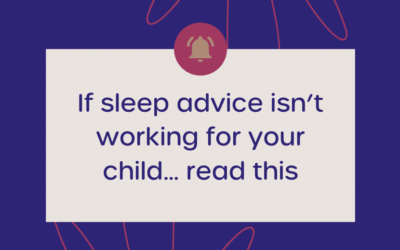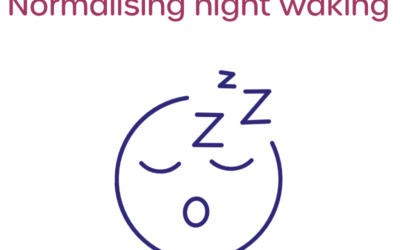If you’ve ever dreaded bedtime, you’re not alone!
Why Is Toddler Sleep So Hard?
If you’ve ever dreaded bedtime with your toddler, you are far from alone. What looks like a simple end-of-day routine on paper can quickly turn into a stressful, emotional experience for both parent and child. From stalling and tears to middle-of-the-night wake-ups and nap refusals, toddler sleep can feel like a never-ending struggle.
But the truth is, toddler sleep isn’t just about being tired — it’s about development, connection, and emotional safety.
That’s why this month on socials and inside The Nest, our focus is on Toddler Sleep — unpacking what’s really happening beneath the surface and providing realistic, gentle support for families navigating sleep challenges.
Let’s take a closer look at why toddler sleep can be so difficult, what factors are at play, and how you can begin to support your little one (and yourself) through this stage with more confidence and less stress.
Toddler Development Changes Everything
Between 18 months and 3 years, toddlers go through a huge number of developmental leaps — emotionally, socially, and neurologically. These changes can directly impact how they fall asleep, stay asleep, and respond to separation at night.
Common toddler milestones that affect sleep include:
- Separation anxiety resurging around 18–24 months
- Language development disrupting their ability to switch off
- Learning independence but still needing emotional closeness
- Cognitive leaps making them more aware of fears or changes
These aren’t “bad habits” — they’re signs of a growing brain trying to process a complex world.
Sleep Isn’t Just Physical — It’s Emotional
A tired toddler doesn’t always fall asleep quickly. Why? Because sleep requires a sense of safety and trust. Toddlers who are overstimulated, overtired, or emotionally unsettled often struggle to wind down — even when their bodies are crying out for rest.
Here’s what toddlers may be feeling at bedtime:
- Fear of separation from their parent
- Overwhelm from a busy or chaotic day
- Confusion about changes in routine
- Need for connection or closeness
Helping toddlers sleep well isn’t just about adjusting naps or tweaking the bedtime — it’s about meeting their emotional needs.
Common Sleep Disruptors in Toddlers
Understanding what might be throwing your toddler off can be incredibly helpful. Some of the most common disruptors include:
- Screen time close to bedtime: Blue light delays melatonin release and stimulates the brain.
- Big life transitions: New nursery, moving house, new sibling — all create emotional ripples.
- Inconsistent daily rhythm: Toddlers thrive on predictability. Irregular nap or mealtime schedules can lead to resistance and restlessness.
- Lack of wind-down time: Going straight from high-energy activities to bed often ends in protest.
The good news? Many of these factors can be gently adjusted over time.
Soothing the Separation Struggles
One of the biggest reasons toddlers resist bedtime is because it means separating from their secure base — you. At this age, their understanding of time and permanence is still developing. Saying goodnight can feel like a huge emotional leap.
What can help:
- Connection rituals before sleep: A cuddle, a calm chat, or a special bedtime song.
- Reassurance, not withdrawal: Letting them know you’re nearby, without reinforcing long battles.
- Predictable goodbyes: Repetition helps toddlers trust the process.
Creating a sleep routine that prioritises emotional safety is often more effective than firm sleep training at this stage.
What Support Looks Like (and Why It Matters)
If you’re feeling exhausted, overwhelmed, or unsure what to try next — you’re not doing anything wrong. Toddler sleep is a deeply emotional and developmental stage, and it deserves support.
That’s why this month, inside The Nest, we’re offering:
- Free sleep resources and guides
- Weekly Q&As to get your personal questions answered
- Mini masterclasses on nap transitions, bedtime routines, and emotional regulation
- A supportive space where you can feel seen, heard, and supported
And if you’re facing persistent challenges or need more tailored help, I also offer 1:1 sleep support packages with personalised plans, coaching calls, and WhatsApp access so you’re never figuring it out alone.
Coming Soon: Toddler Sleep Masterclass – May 17th
On May 17th, I’ll be hosting a live Toddler Sleep Masterclass, designed specifically for parents of toddlers aged 18 months to 3 years. We’ll cover:
- The science of toddler sleep
- Emotional regulation and bedtime battles
- Calming routines that work
- What’s developmentally normal (and what’s not)
You’ll leave with a better understanding of what your toddler needs to sleep well — and how to meet them with confidence, not conflict.
Final Thoughts
Toddler sleep isn’t about “fixing” your child — it’s about understanding them. When we approach sleep with empathy, curiosity, and support, everything starts to feel a little easier.
So whether you’re struggling with bedtime right now or just want to feel more prepared — you are welcome here.
Join The Nest today for access to our full month of toddler sleep support, and mark your calendar for May 17th — I’d love to see you at the masterclass. 💛




0 Comments